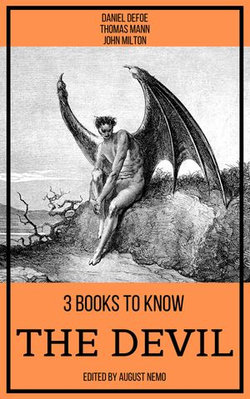Welcome to the3 Books To Knowseries, our idea is to help readers learn about fascinating topics through three essential and relevant books. These carefully selected works can be fiction, non-fiction, historical documents or even biographies. We will always select for you three great works to instigate your mind, this time the topic is: The Devil. - The Political History of the Devil by Daniel Defoe - Paradise Lost by John Milton - The Devil on Two Sticks by Alain-René LesageThe Political History of the Devil is a 1726 book by Daniel Defoe. General scholarly opinion is that Defoe really did think of the Devil as a participant in world history. Paradise Lost is an epic poem in blank verse by the 17th-century English poet John Milton. The first version, published in 1667, consisted of ten books with over ten thousand lines of verse. The Devil on Two Sticks is a 1707 novel by French writer Alain-René Lesage. It is set in Madrid, and it tells the story of demon king Asmodeus, Don Cleophas Leandro Perez Zambullo and his beloved, Donna Thomasa. This is one of many books in the series 3 Books To Know. If you liked this book, look for the other titles in the series, we are sure you will like some of the topics.



Share This eBook: